Brad Van Dam - State of the Industry - PODCAST TRANSCRIPTION
May 31, 2023 at 8:00 a.m.Editor's note: The following is the transcript of a live interview with Brad Van Dam. You can read the interview below or listen to the podcast.
Speaker 1: Welcome to Roofing Road Trips with Heidi. Explore the roofing industry through the eyes of a long-term professional within the trade. Listen for insights, interviews, and exciting news in the roofing industry today.
Heidi J. Ellsworth: Hello and welcome to another Roofing Road Trips from Roofers Coffee Shop. My name is Heidi Ellsworth and I am road tripping east to meet with one of my favorite roofing people, Brad Van Dam with MTL Holdings. Brad, welcome back to the show.
Brad Van Dam: How you doing, Heidi? Good to see you again.
Heidi J. Ellsworth: Good to see you. I love our conversations on the roofing road trips and today is a great one because we're going to talk about the state of the industry, the roofing industry, and you are so involved with so many things.
So before we launch into that, why don't you go ahead and introduce yourself. Tell us a little bit about MTL, Metal Era, Hickman, all that good stuff.
Brad Van Dam: Yeah, you bet. So this is my 11th year at what is now called MTL Holdings. We are the parent company of Metal Era & Hickman Edge Systems and Citadel architectural products. And so largest manufacturer of fascia coping trims in North America. And the Citadel product line is a manufacturer of ACM and MCM panels for use by contractors, fabricators, and installers throughout the US. So about 300 great humans work on our team across three different facilities. Waukesha, Wisconsin, Asheville, North Carolina, and Indianapolis, Indiana. So it's a good group of people and I've thoroughly enjoyed my 11 years on this front, working in the roofing industry. It's just been a heck of a lot of fun.
Heidi J. Ellsworth: You have such great company. I mean overall with all the companies that come in, you are also incredibly involved in the industry. You and I see each other at all the events. It's always great. And this year as president of SPRI you and your involvement with NRCA and everything you're doing, you just have such a wealth of knowledge. So why are you president? Why are you involved with NRCA? Why are roofing associations so important?
Brad Van Dam: So really, really good question and it takes me back to why do I subject myself to the trips and the handshakes and the smiles and kissing babies and shaking hands. I think industry association involvement is the best way to constructively amplify your voice. And I think that it offers me an opportunity to do that for the 300 employees in our team, but also for our customers, our end users, our customers, customers, our partners throughout the industry. And I feel like it's a responsibility that we have. When you take on your role in the industry, you have to find a way to give back and so being able to take the needs, the issues, the code changes, the different things that are hitting the industry and constructively amplify your voice, I think that that's really why I chose to get involved with SPRI so many years ago.
And then why I chose to continue to engage at SPRI and serve on committees, take a position as treasurer, and I always joke, I felt like I missed a meeting and they voted me president, but the reality of it is it's a really good group of people trying to make the industry better. And when you surround yourself with more of those folks, I think more things get done and accomplished. Reid Ribble's One Voice Initiative spoke to me. We joined that program after we came up and visited and really tried to understand what NRCA was trying to do with it, and I've now participated in two national roofing days in DC in a row. And this year the NRCA folks asked me to participate in MCing one of the mediated events. And so I enjoyed it and it's really an area that I've just absolutely enjoyed. The people I've gotten to meet and hopefully at the end of whatever my run looks like in this involvement, I've made a difference and can leave something behind positive.
Heidi J. Ellsworth: Oh, that's for sure. That is for sure. And I agree with you, it's so important. And what you're talking about with Roofing Day, you did a great job on moderating that panel. I thought it was so interesting. What were some of the things that you heard while you're in DC and, I mean, I know with my congress women and congressmen, we had a really great response to the NRCA issues. What did you have?
Brad Van Dam: It was so fortunate to be able to play that back and on the trip home I had some extra time that I didn't have meetings. And so I'm just going through it and I tried to sum it up and I knew I was coming on this cast and that you would ask me about it because we saw each other there. So I said in summing it up, I really think all the issues NRCA raised and the receptions we received were not only extremely positive, but it really confirmed for me that the NRCA was on the correct side of those issues. And I hesitate to say the right side of it. It was clearly the correct side of the issues and it was so much easier in those conversations to find support than it was to find the objections.
And so as we looked at the issues they put forward, right, expanding, technical education, training, the Innovation Workforce Act, expanding the building technology office, or at least just keeping the funding there, it was so much easier to find support than it was to find the objection in the room. And that was my experience as we went through all of the meetings I had. I was very fortunate. All of mine were in person so all the meetings with our legislators from Wisconsin were in person. They were very gracious and it was just a really good experience with a good group of folks from our state. So again, correct side of the issue is the way that I would describe where NRCA was, whether you were leaning left, leaning right, didn't matter. You were really trying to find a path for people forward.
Heidi J. Ellsworth: I felt that we had such success because they were really bipartisan issues. They were what everyone cared about. So you didn't get caught up into the politics that much. It was really more about, okay, yeah, we need more career in technical education. We need a solution to immigration, we need to help with taxes. So yeah, I agree. I felt the same way. It was really a great experience. And you being there with all of those different roofing industry thought leaders, really, what are you hearing in regards to the state of the roofing industry? How are we looking?
Brad Van Dam: Yeah, I think the word I like to use is resilience. I was a contractor during the 2008 crisis. I did concrete coatings and polishing and so as construction hit and we all were turned on our heads back during that recession. I wasn't in the roofing industry and seeing how the roofing industry has responded to the last three years, the Covid pandemic being declared essential, working its way through some of the most insane supply challenges that have ever hit the manufacturing industry, contractors fighting through some of the most insane challenges that have ever hit the labor industry and going into that with a shortage in labor prior to having the most insane impact to their businesses, seeing the credit crunch fight its way through really in the industry when contractors may have to borrow money or have credit lines. I just never am ceased... In my 11 years in it now and my now 29 overall in construction, construction in general has been such a resilient industry to be in. Roofing even more so for me has been amazing to watch the resiliency.
And I think certainly there's issues going on right now. We can dive into the inventory issue right. Now being on the manufacturing side, a lot of manufacturers at one point over time went to just in time manufacturing, reduce their inventories, really started making to order and not stocking as much on their shelves. And contractors were very accustomed to getting materials quickly and fast. And manufacturers couldn't do that during certain times over the last few years and contractors had to adjust. Right now, some major corporations have identified in their Q1 reports that there's been certainly a drop in year over year revenue that they've seen as the inventory in the market works its way through. You saw it coming. The contractors functionally had to figure out a way to get material to a job to keep their businesses running, and they couldn't depend on just in time manufacturing during the course of the last several years.
So I think as that's worked its way out, most of what we're seeing and we just did a pulse survey with all of our independent reps and we had over 50 responses. Really it was a great piece we have about 60 reps that were pulled, so...
Heidi J. Ellsworth: Wow, that's great.
Brad Van Dam: Pretty good. [inaudible 00:09:51] great. It was over 78% positive that the industry would see growth year over year in number of projects installed, and that functionally it was healthy and resilient through the balance of 23. Really great for us to see. It was an awesome feedback from them. And I think there's also some really unique green shoots that have kind of shown up through the course of these troubles. Like most things, you learn a lesson. There's lessons that come in failure or difficulty. I think we've actually started to see a lot of the messaging NRCA and contractor members are putting out there, getting through.
I pulled this stat for you because I'm putting together a year-end summary for our team, and it's very interesting. Just reported first quarter 2023, the actual increase in students enrolling into trade schools for construction has now gotten back to the rate it was pre-pandemic and it was a huge increase this last quarter. It bounced at the largest or fastest rate. It was 19.3% up and there were another 11,140 students added. You look at that and you go, wow, this is exactly what NRCA has been talking about the last several years. Expand that funding and access to Perkins Grants instead of funding Pells at that rate, get kids and youth more interested in it. And I think back to your earlier question, why do I do it? Construction has afforded me an opportunity for equity. It certainly has given me an opportunity for growth.
It served my family well through difficult times and good times, and I think that there's such an opportunity for folks regardless of race, gender, anything, age that you want to find and we're seeing that all throughout this roofing industry. There is a tremendous opportunity for people to find a good path to equity and work for it. And it's afforded me that during bad times, good times, I just want to see more people see that, and I want more people to be a part of that.
The construction industry needs more workers and knowing as I've lived it for the 29 years now, it's an opportunity for folks to advance and not start behind. But today, the entry level folks are actually coming in without massive amounts of college debt and having to work their way back. The training programs that have been instituted, the investments NRCA has made individual contractor members are making, watching people come into apprenticeship programs and learn quickly and get out, earning very good wages, taking care of their families, contributing, it's just awesome. And I just think there's so much opportunity for equity in this industry. It's just been a lot of fun to be a part of putting that out and getting that voice raised.
Heidi J. Ellsworth: So well said, because I feel the exact same way. The roofing industry has been just so phenomenal to my family and most of them are working in it now too, because it's just such a great industry. And the more we can get that message out... I remember you and I sitting in the meetings at NRCA and Reid Ribble was really the leader of that on One Voice. How do we rise the tide of respect for roofing, roofing respect and respect for what we do. And I've seen it change definitely in the last six, seven years. I mean, it's been incredible with everything that's going on out there, including other things Metal NTL is so involved with national women are roofing, RT3, in fact, we're coming to your place for a tour in the fall. And so I just think all of those things have come together to really raise a ruckus and make people aware of us.
Brad Van Dam: I think it's working. Another interesting piece I was reading about just this week, the construction industry really is driving the low unemployment rate. We have historically going into recessions, we've typically seen construction be hit the hardest and construction slows up. But through the first quarter, construction spending is at an all time high. Ultimately, we've seen a still an increase in need for workers in the construction industry going in. And I think it's really perplexing for a lot of folks to finally start to see that construction and that need was so far behind in workers that now it's able to really carry water and carry weight for the overall economy to the extent that it's still driving growth going into what likely will be a downturn at some point.
Heidi J. Ellsworth: Right. I know, and like you said, when you talked to all the roofing contractors out there, you talked to most people, they're like, they're so busy. Everybody I talked to, they're so busy. And so I wanted to hit back on one you mentioned a little bit earlier, but just where we're at with that supply chain that was so hard on the industry and it seems like we're coming out of it, but what are you seeing?
Brad Van Dam: Yeah, so mixed areas, it's much like it was before, there wasn't one thing. You can't just say today, trucking is slowing us down, or these imported items from another country or a tariff that was causing, or somebody. It's not one item. So we've seen some things pop up and down. I think certainly inflation has slowed massively and construction materials, we've definitely seen a return to being able to get materials more effectively across the board. There's still some pockets of struggle, but most of that has been overcome with inventory and certainly we're still working down inventories in the overall industry. So I think supply chain wise, barring another crisis event of some sort or a war somewhere else, I feel like it's returned to some level of normalcy. I think the interesting question in my head will be, how far do we move back towards where we were?
Do we all maintain higher inventory levels now? Is this going to be something that's done for a longer period of time? Are contractors going to have those extra warehouses or still store exterior in their yards or will the construction industry begin purchasing materials sooner and storing them on job sites? Will they begin to help subcontractors prepay for materials and get ahead of things? What will be the new norm in how the industry deals or tackles with this? And then what's going to come if there is a slowdown in new construction of some sort or some kind of a tangent in the armor, so to speak, of all this growth we've seen.
Heidi J. Ellsworth: It is really interesting. When I first came into roofing, which was a little 30 years ago, you said, I think construction for 29, but every contractor had their own warehouse. Everybody had inventory, everybody did that and it just over time, like you said, it changed. So yeah, I see it's going back to what basically was the mid-nineties. It is funny how many things are happening in the industry today with those types of things, the mergers and acquisitions, all the different things that are going on, how much it reminds me of the mid to late nineties. It's very similar.
Brad Van Dam: Yeah, I agree with that. I also think the labor shortage, aside from the supply chain issue, and you could call labor, certainly a big piece of the supply chain. But I would say that the labor shortage has also impacted a lot of behavior in my position at SPRI, watching the rise of single supply roofing membranes as a percent of the overall roofing installations in the United States versus maybe multiply or hot torch type applications or even systems where we're pumping up onto the roof and we're mopping things out.
Ultimately we've seen this transition from manufacturing the roof on the roof to assembling the roof on the roof, and a lot of that was driven by labor needs. We've definitely seen prefabrication increase. We've definitely seen folks try to get parts made offsite and then bring those on to assemble on the roof. I think that trend is certainly taking over in construction and moving that way. Much like precast panels started coming into play many years back and really drove a big change in masonry installations and that volume. So it's coming, it's accelerated when you have labor issues in the country. I think you see NRCA fighting very hard for their members to try to help get a fix for that. Certainly immigration reform is a necessary item. Both sides agree some form of reform is needed. They don't agree on what, when, where or how.
Heidi J. Ellsworth: They can't seem to see each other in the middle at all, but maybe.
Brad Van Dam: No, but I was reminding my kids the other day about my experiences when I was younger. One of my parents was in the trades, it was a glazer, and we lived in Chula Vista, California, which is just minutes from the border and the border crossing there. And really, as I look back, immigration, legal or illegal regardless, immigration really helped drive construction trades 30 years ago, 20.
It is a part of our overall economy. It's a part of our culture, it's a part of our fabric. It's important that we do it right and so figuring out a solution for immigration, right sizing it, much like the NRCA is identifying, "Hey, let's flex this as the labor force needs are." So we're not taking jobs from US citizens that want them, but we can continue to grow our business and bring folks in here that want to be a part of contributing to our society and growing us. I think it's important to find that path and back to why do we get involved with NRCA and SPRI and other industry associations is to try to make a difference.
Heidi J. Ellsworth: I want to hit on one topic that it goes with what you're seeing, the changes with prefabrication on the roof, all the things that are going on, and that is this drive for sustainability and it's hit roofing. It's been going on in construction for a long time, but it seems like we're here. What are you seeing on that front?
Brad Van Dam: We were at our SPRI meeting, quarterly meeting last week, and to the members during a discussion over sustainability, which is part of SPRI's five-year strategic plan, they were reporting on the amount of single ply membrane that they had recycled. And when they mentioned the poundage of that, how many millions of pounds that they had recycled, in this case, PVCs and certainly I know other single ply membranes are being used to recycled, and then you look at how much recycled content it has, how many of these parts have. I know for our own side in fascias and copings, a very large portion of the materials we use are already recycled content and certainly we try to use that as much as possible. It has become such a big part of our daily conversation is how do we contribute to recycle, reuse, how do we contribute to longer term use?
Maybe a continual use part in lieu of something that's going to be used once and thrown away or only used once for a brief period? How do we extend the life and that resiliency in both design specification, manufacturing is a big part of it.
EPDs have certainly taken off. People want to know the life cycle. We've seen single ply roofing industry members actually create calculators relative to their carbon net neutral. Frankly, it's been stunning to watch, but it's not surprising. You can see around the corner that with wind issues, storm issues, climate issues, regardless for why you believe they're occurring, they're becoming more frequent and they certainly are costing us more dollars as a society through either insurance premiums or god forbid, loss of life or issues that are happening with hurricanes, tornadoes. You got to pay attention to it, and the industry is certainly headed there. Construction can be a slow moving ship to turn. I certainly though have been very pleased to see a lot of work being done behind the scenes by a lot of industries to get there. So roofing in particular, I think is well on the track to try to find more sustainable solutions.
Heidi J. Ellsworth: And to that point of what you said to me, these are things that are going to happen, sustainability and environmental product data and what we have to do with that. Just like technology is going to change the roofing industry. We're seeing it every day with robotics and what's happening there. So really, I'd love for you to share with everybody your thoughts on what we're looking at for 2024 and how some of these things like technology, sustainability, diversity, all these things are going to continue to change our industry. And of course, we all want to hear what your thoughts are on the economics.
Brad Van Dam: So we heavily invested in robotics beginning in 2008 before my time here at the company watching the advancement where we're able to bring in additional equipment, automate some processes that maybe were more redundant or repetitive or certainly were lower skilled positions and then upskill folks and get folks from those jobs into other jobs that maybe are office based or engineering based, or even moving to different equipment that requires more skill and training. We've found a very good path internally here to repurpose folks into upskilled positions. I tell the story that the gentleman leading our technical sales group and handling all of our quoting here in Waukesha started on the shop floor and today, if you want to quote, probably no one better than somebody who physically made the part to be able to help you quote that. It was a great upskilling piece. I'm sure when he walked in, he wasn't used to looking at Excel spreadsheets and budgeting hours for staff, but today he's leading a large group that's mostly remote, doing technical quotes and getting quotes to our customers quickly.
All of that is made more possible by the investment in robotics because everybody is short-staffed, and so if you're able to use technology in a way that helps you upscale folks to other positions that are vital at your business, I think it's a great testament to where we're headed. I definitely think it's something that we see coming in the industry overall.
Obviously we hear a lot about AI and what's coming with that. We've certainly seen folks use it to write copy and do some of the simple things. I've had an email almost every other day telling me I need a virtual AI assistant for 50 cents a day lately, and I'm supposed to check that out. I don't even know what that is. So I think it's just important to keep your ears open and really look with an open mind at those options. And then always figure in that human element to how you're going to improve your folks, improve your skillsets, make sure that your teammates are able to move to those vital positions you need. And I think that's become probably the most important part of watching what's happening in the industry.
Heidi J. Ellsworth: Retaining and empowering your people.
Brad Van Dam: Exactly. Yeah, and I think economically 2024, I have no clue other than to tell you, I do think the resilience of the roofing industry, knowing that the majority of what's being done in the market still continues to be the re-roofing repairs really stuff that is more difficult to push off. I think that's very important. I do think the construction industry, the government is actively trying to slow that down on the new construction side with the increased rates. They're actively attempting to do that. I think it's just been fun to watch the industry say, "Yeah, we're still going to build because we need apartment buildings, we need houses, we need schools and hospitals, and we're still going to fight through it together." I think it's going to be a battle in 24 ultimately but I think, again, the resilience of the roofing industry is something that has never ceased to amaze me in the short time I've been in it, in the 11 years that I've seen it.
So I think there's a lot of smart people that will figure out how to do it. I do think the trends that we've seen don't go away. I think we just learn how to deal with a lot of those trends differently than we have historically, and I think maybe we don't go back to whatever normal was beforehand. I don't know many of us remember exactly what that was, but I think a lot of those changes more remotes, having people placed strategically around, I don't know that changes massively. I think there's some benefits to that. People like the home life balance. I think there's a lot of things that won't change into 24, but economically we'll have to ride some kind of a storm now, whatever that may be.
Heidi J. Ellsworth: Yeah. Well, I'm with you. Having also gone through the 2007, 2008 scariness, the roofing industry was resilient then, and I don't think this is going to be even anywhere near to that. So I think we're looking in a great place, especially with leaders like you. Thank you, Brad so much for being on here and sharing all your wisdom.
Brad Van Dam: Thank you, Heidi. And anytime, always enjoy talking to you and it's great. And I love jumping in and listening to your podcast as well, so thank you very much.
Heidi J. Ellsworth: I love it.
You're a recurring guest, so.
Brad Van Dam: Don't give me like a walkup song or anything. That kind of.... Then you got to....
Heidi J. Ellsworth: I'm going to be like, "Yes, we're bringing Brad back. Yeah." No, we have a lot more topics out there to be discussing so thank you again so much for being here today.
Brad Van Dam: You bet. Thank you so much.
Heidi J. Ellsworth: Thank You. And thank you all for listening. Great information, the stuff you need for your business. Please check out the MTL Holdings directories on Roofers Coffee Shop, both Metal Era and Hickman and Citadel. So check them out and get all the information there.
Plus be sure to listen to all of our podcasts like Brad just said underneath, read, listen, watch Under Roofing Road Trips and or on your favorite podcast channel. Be sure to subscribe and set those notifications so you don't miss a single episode. And we'll be seeing you next time on Roofing Road Trips.
Speaker 1: Make sure to subscribe to our channel and leave a review. Thanks for listening. This has been Roofing Road Trips with Heidi from the Roofers Coffee Shop.



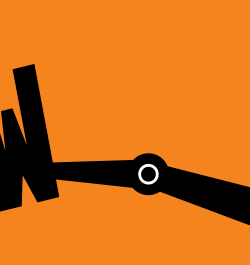
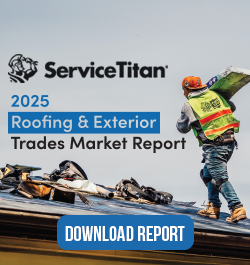








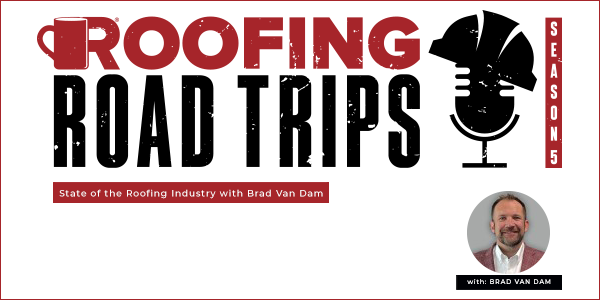
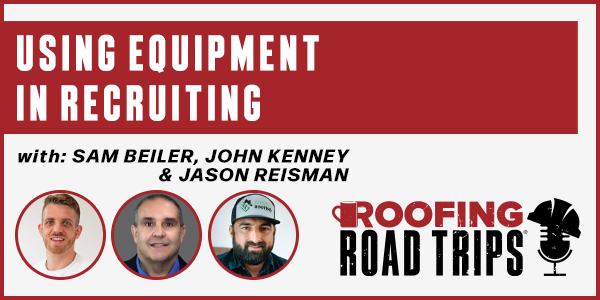

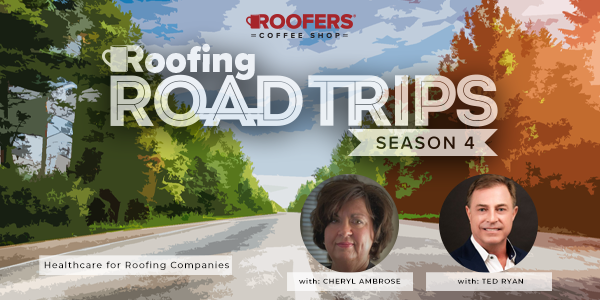

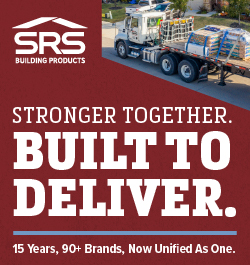
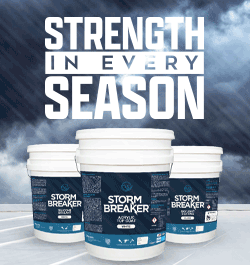


Comments
Leave a Reply
Have an account? Login to leave a comment!
Sign In